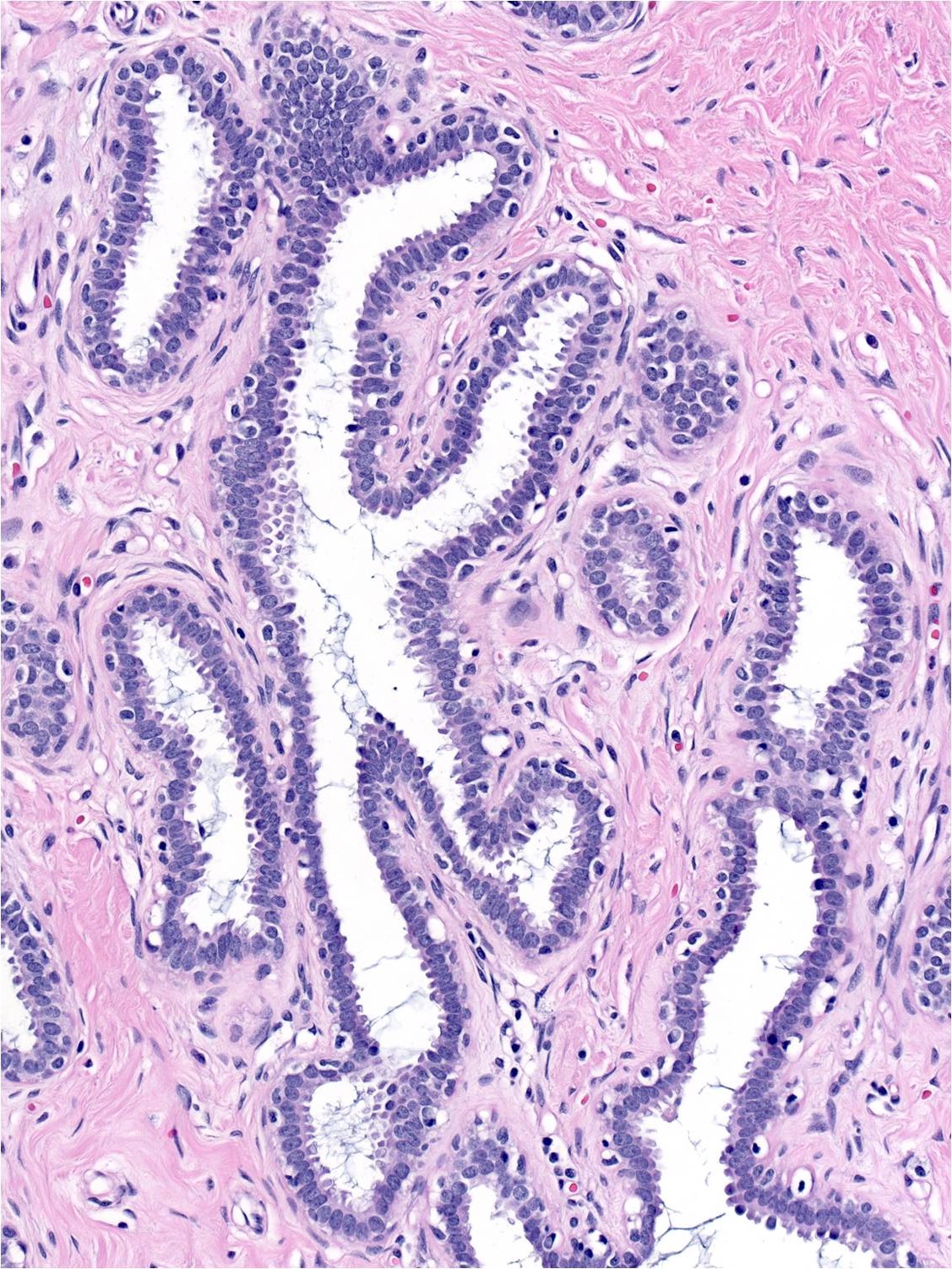Blunt Duct Adenosis
|
Definition: Blunt duct adenosis (BDA) represents a form of benign lobular hypertrophy in which the proliferative glands look like the ductules of immature lobules. Clinical Significance: BDA has a benign nature and it does not indicate a heightened risk for the development of carcinoma. BDA usually represents an incidental microscopical finding. It does not commonly give rise to clinical signs or symptoms. Calcifications visible on a mammogram can form within the glands, but this happens only rarely. Gross Findings: None Microscopic Findings: The histological features of BDA vary somewhat depending on the age of the focus. Findings common to all examples include: enlargement of the entire lobule; dilatation of the lobular glands, which exhibit a simple branching pattern often referred to as "staghorn-like"; and prominence of the myoepithelial cells. The characteristics of the intralobular (specialized) stroma varies with the age of the focus. The specialized stroma often appears cellular, and the extracellular matrix contains collagen or myxoid ground substances. Numerous lymphocytes and plasma cells may be present. Differential Diagnosis: Early usual ductal hyperplasia (glands usually lack the simple branching pattern and the myoepithelial cell layer is less prominent); flat epithelial atypia (low-grade cytologic atypia, orderly arrangement, non-prominent myoepithelial cells). Discussion: |
 |